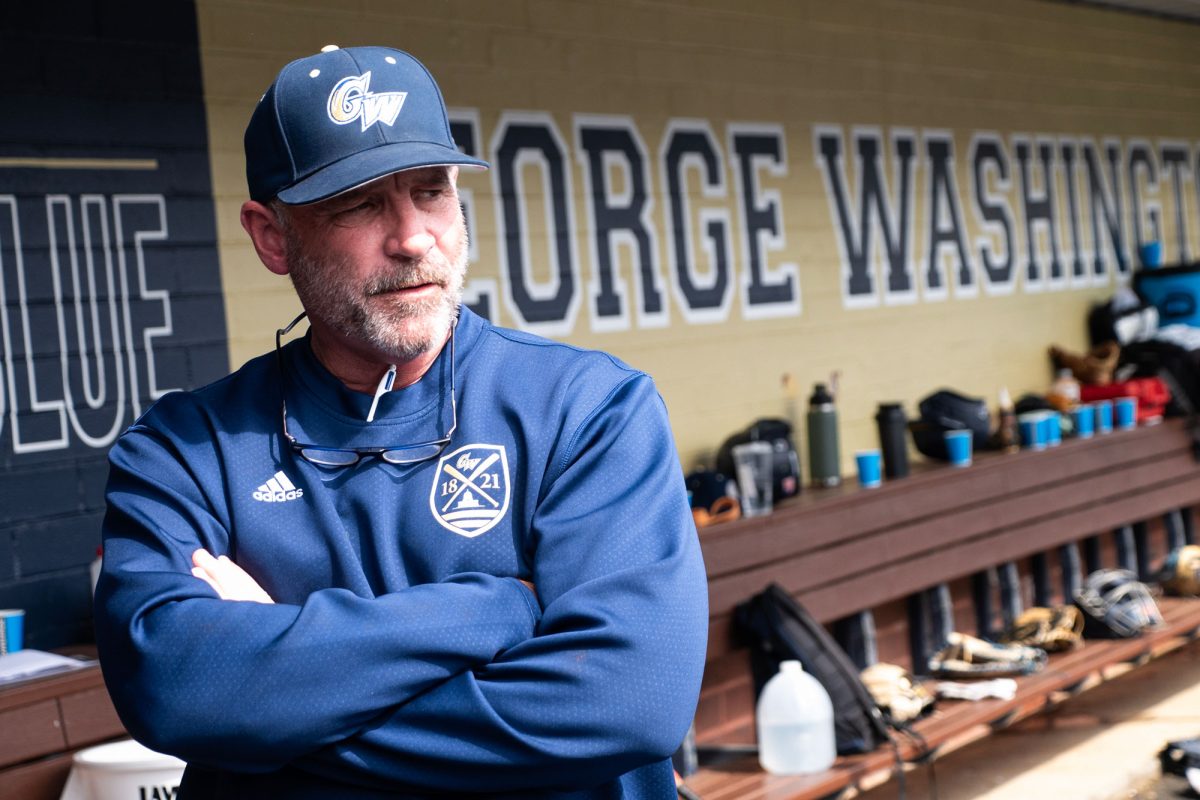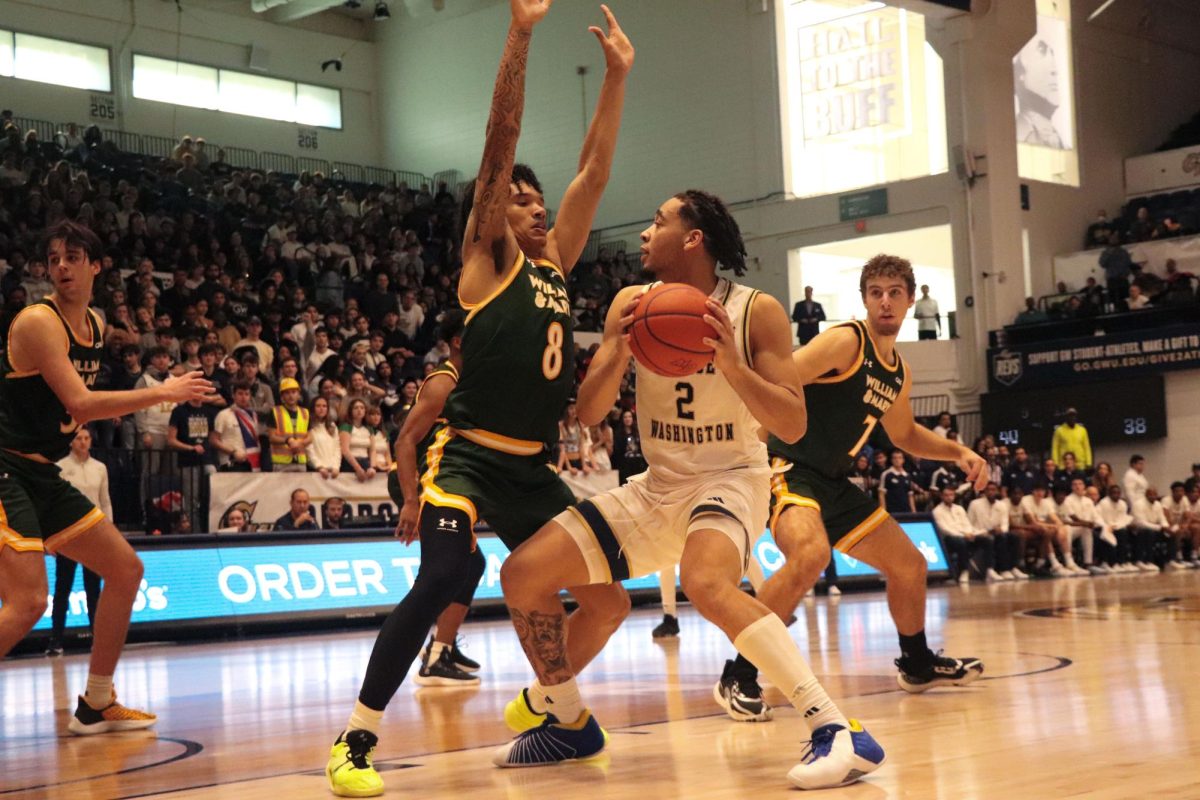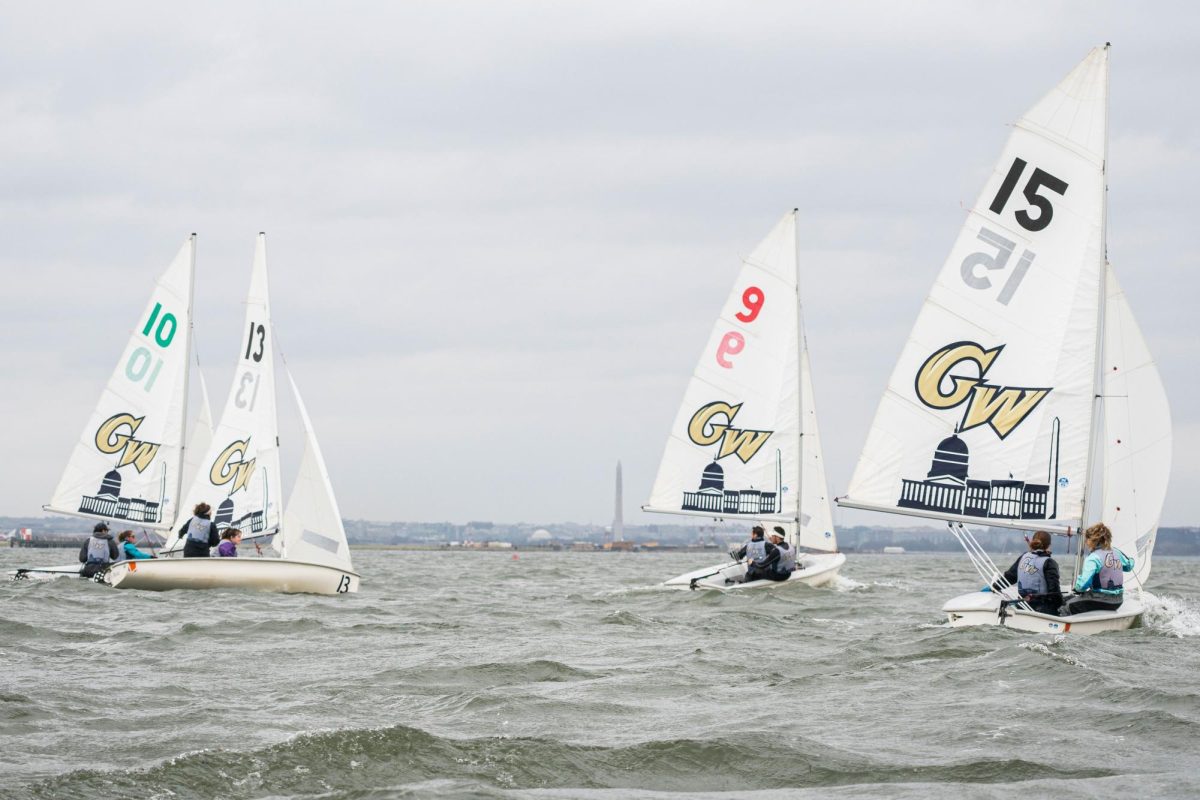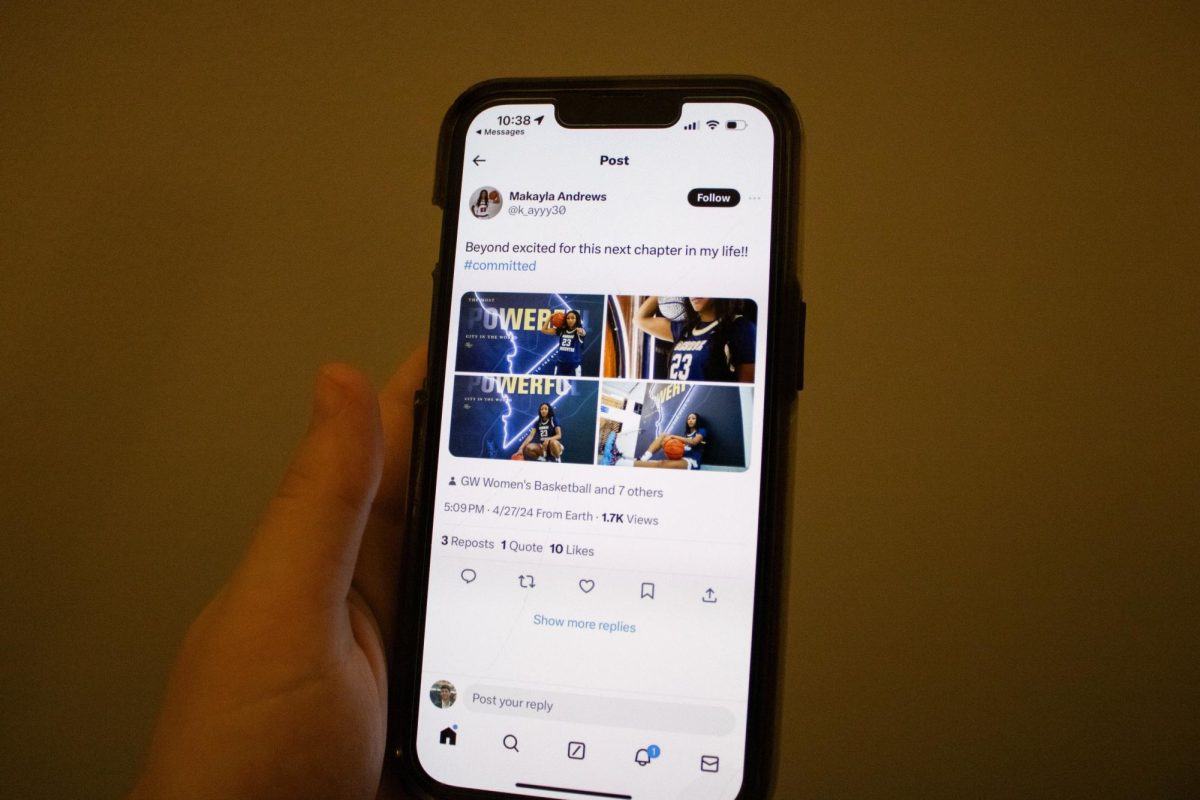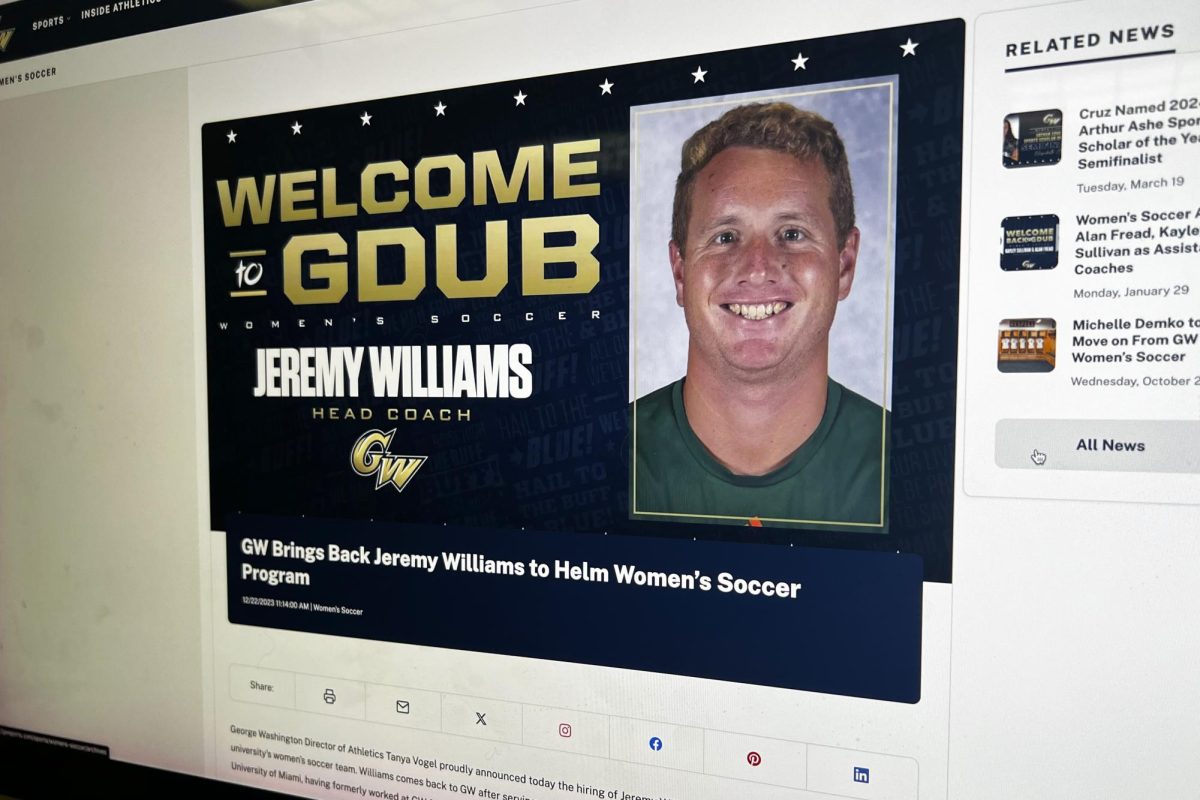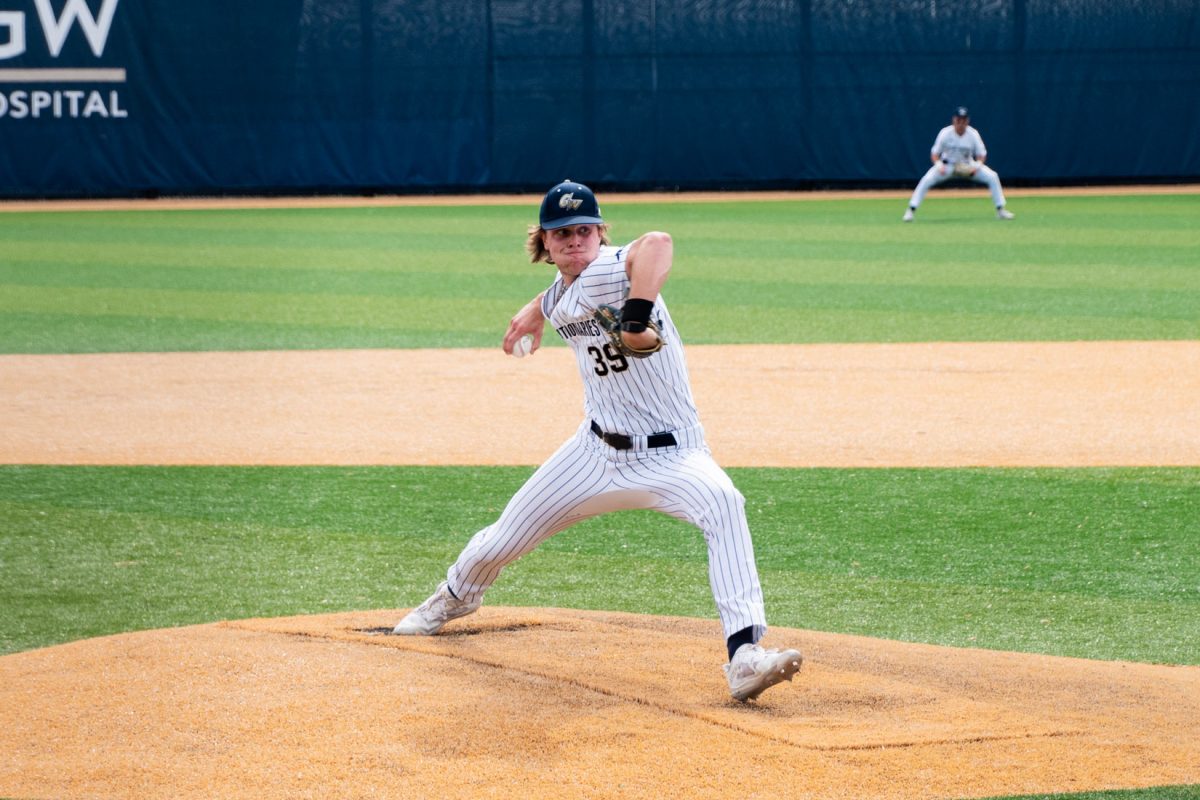With fall sports delayed until the spring semester, The Hatchet is checking in with head coaches from affected programs to gain insight on how each team is handling the pause on competition. Check back each week for new installments.
Men’s and women’s soccer are making the most of an nontraditional fall season, replacing competition with a slow return to practices and Zoom bonding sessions.
The Atlantic 10 postponed fall sports until the spring semester as the COVID-19 pandemic rages on. Head men’s soccer coach Craig Jones and head women’s soccer coach Michelle Demko said their teams are slowly getting back on the field to train for the upcoming season.
Here’s how the two squads are prepping for their first spring season:
Men’s soccer
With 16 of the team’s 26 rostered players returning to D.C. for the semester, Jones said the Colonials are easing into full practices.
All returning players quarantined and followed social distancing procedures to be cleared by the Colonial Health Center for training, Jones said. GW established a return to athletics and a return to play committee that mandated a phased return to athletics.
Jones said the team has recently begun using facilities and practicing in person in pods. While wearing masks and social distancing are new additions for the team’s practice regimen, Jones said the team trains in pods of position players during a normal seasons’ practices.
“It’s really slow in terms of the intensity and working back to full practices,” he said. “It has been such a long time away from the game.”
With 10 Colonials hailing from outside the United States and a couple of student-athletes on the West Coast, Jones said he and his staff have been battling timezones to keep the team connected. He added that the squad meets weekly, but after missing spontaneous visits to his office to connect with players, Jones added a weekly “coffee hour” where players can drop in and chat.
“We’re really trying to spin it and stay positive and we want to work this fall so we can win a championship in the spring,” Jones said.
Jones said he was not surprised by the decision, and the postponement gives the team something to look forward to.
“The way things were trending, it was becoming apparent that it just wasn’t going to work this fall,” Jones said. “So I’m actually glad that the decision was made in terms of the safety of us, and that’s the main thing, the safety and care of our athletes.”
Women’s soccer
Demko said 19 of her 25 athletes are back in the District, and the squad has been prioritizing social distancing measures and virtual team bonding sessions.
Practice resumed two weeks ago and the teams are divided into two separate pods, Demko said. Without a Vex to transport athletes to and from the Vern, she said the team uses two vans, one to transport the on-campus pod and one for the off-campus pod.
The pods train separately, with the first shift going from 7:30 to 8:30 a.m. and the second from 9 to 10 a.m on practice days, she said. She said the squad has also started lifting weights twice a week under the direction of strength and conditioning coach Chaz Berry.
Players are not allowed to touch equipment or set up the field for practice, and all the equipment is disinfected after workouts. Locker rooms are off limits, and players are only allowed to access bathrooms and workout areas.
Like the men’s squad, Demko set up a standing team meeting every Wednesday from 8:30 to 9:30 a.m. She said players are required to have their cameras on to connect with each other and discuss a chosen topic each meeting.
At first, the meeting topics centered on team building and leadership, but Demko she said she’s been expanding the topics to include social justice issues. In a recent meeting, players discussed the legacy of the late Supreme Court Justice Ruth Bader Ginsburg, she said.
“Each group was assigned a different legacy of her life, and the group had five to seven minutes to present,” Demko said. “Moving forward, we’re trying to pick topics that have social relevance and have teachable moments.”
Demko has also formed small groups of three to four players, called “accountability groups.” She said it’s easier for players to interact with smaller groups instead of 25 people in a virtual meeting.
Each week, she calls or sends an audio message to keep players who did not return to D.C. engaged.
“We need to make sure we’re getting the same kind of face time with the players that are at home, learning virtually,” Demko said.


